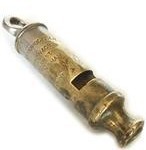What would you do with $150 million to $300 million? That could be the size of the whistleblower award in a case involving Raytheon. A federal appeals court says the giant defense contractor must face charges brought by a former Raytheon engineer.
Steven Mateski began working for Raytheon in 1997. Between 1997 and 2006 he was employed as a Manufacturing Planner Engineer. In that role he acquired significant insider knowledge about Raytheon and their work on an infrared weather sensor that was part of a government satellite system.
According to published reports, the project was doomed from the start. Delays, failures and cost overruns. Not every government technology project succeeds but Mateski claims that Raytheon lied and overbilled the government.
Like most whistleblowers, Mateski says he tried to raise his concerns with company officials first. When no one would listen he decided to become a whistleblower. In 2006, he filed a 135 page lawsuit under the federal False Claims Act.
The stakes in this case are huge. Raytheon may be on the hook for $1 billion if they lose.
Early in the case, Raytheon filed a motion to dismiss the case. The False Claims Act has something called a “public disclosure bar.” That rule says whistleblowers must be the original source of the information in their complaints and can’t claim an award for things that are common knowledge or have already been exposed.
A U.S. District Court judge in Los Angeles agreed with Raytheon and dismissed Mateski’s lawsuit on public disclosure grounds. The stakes were simply too high, however, so the dismissal was appealed.
Yesterday a 3 judge appeals panel overturned the trial court’s order dismissing the case. That means Mateski’s case can go forward. The Court of Appeals ruled that even though a Government Accountability Office audit outlined many of the problems, Mateski provided evidence and details not known to the government.
Chief Judge Michelle Friedland said, “If his allegations prove to be true, Mateski will undoubtedly have been one of those whistleblowing insiders with genuinely valuable information, rather than an opportunistic plaintiff who has no significant information to contribute.” Because the GAO study only outlined general areas of fraud, Mateski supplied the details that allowed the government to connect the dots.
False Claims Act and Whistleblower Awards
Mateski filed his claim using an 1863 law, the federal False Claims Act. That law is one of the government’s potent anti-fraud weapons. It authorizes private individuals to file lawsuits in the name of the government. If the case succeeds, the whistleblower – called a relator – can keep up to 30% of whatever is collected from the wrongdoer.
The requirements to get an award are straightforward. One must:
- Have inside information
- The fraud must involve federal programs or dollars
- The relator must file a sealed lawsuit in federal court
Do all those things any you become eligible for an award of between 15% and 30% of what the government collects. Because the law has a triple damage provision, the fines (and therefore awards) become huge.
There are more details, of course but those are the highlights. The biggest criterion is having inside knowledge. If that sounds like you, give us a call. Our whistleblower clients have made tens of millions dollars in award monies. You could be next.
One of the “details” mentioned above is a first to file requirement. If you have knowledge, don’t wait. If someone files first with similar information you could receive nothing.
Need more information? Contact attorney Brian Mahany at or by telephone at (direct). There is no obligation and all inquiries are protected by the attorney – client privilege.
Whistleblowers are the new American heroes. They saved taxpayers $3.5 billion last year. Help stamp out greed and corruption and earn the gratitude (and cash) of the United States for your help.
MahanyLaw – America’s Whistleblower Lawyers


